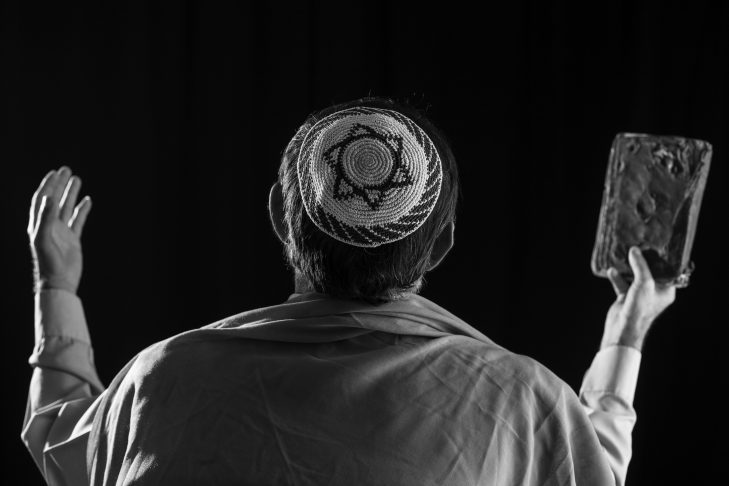Perhaps you’ve thought about becoming a rabbi but wondered if the time and expense required would be overwhelming. Now, there is another option for those seeking to engage in the Jewish world, help people, teach and perform other functions that a rabbi might need some help with. This fall, Hebrew Seminary: A Rabbinical School for Deaf & Hearing in Chicago, will launch the world’s first ever pararabbinic program.
Hebrew Seminary, founded in 1992 in Skokie, Illinois, is a pluralistic, egalitarian, inclusive rabbinical school that trains rabbis, pararabbis and educators to serve all Jewish communities, including the Deaf community. Classes are open to rabbinic students, as well as auditing students from around the world. Hebrew Seminary prepares Jewish leaders to serve diverse communities of Jews, Jewish communities, multi-faith communities and seekers from all walks of life.
Their Pararabbinic Program opens an accessible path to Jewish leadership that draws upon the specialized skillsets gained through a rabbinic education. Compared with rabbinic training, Hebrew Seminary’s Pararabbinic Program requires fewer courses focused on Judaism’s legal and intellectual traditions, while emphasizing competency in spiritual leadership. Those who complete the program can serve Jewish and multi-faith populations in a variety of ways. These include, but are not limited to, complementing the work of rabbis in large congregations, serving as spiritual leaders of small communities, and facilitating Jewish programming at college campuses, care facilities and elsewhere.
“There is no single definition of a pararabbi, just as it’s hard to define a rabbi in a nutshell,” explained Rabbi Jonah Rank, a Natick-native and president and Rosh Yeshivah of Hebrew Seminary. His wife, Rabbi Raysh Weiss, is senior co-rabbi at Temple Israel of Natick. “That being said, a pararabbi serves Jewish communities similarly to how a paramedic serves in the field of medicine or a paralegal in the field of law. A pararabbi can come in many different forms. The pararabbis we graduate will serve Jews, Jewish communities, multi-faith communities and seekers as spiritual, pastoral, ritual and moral leaders.”
All classes at the school are currently held virtually and are open to rabbinic students, as well as auditing students from around the world. Hebrew Seminary’s two-year, full-time Pararabbinic Program will open up new employment opportunities in the Jewish world and is designed with fewer financial and time constraints than a traditional rabbinic program.
“Communities across the Jewish globe need pararabbis and have needed them for years,” stated Rabbi Rank. “From my experience in the rabbinate, I have witnessed too many Jewish professionals who are overworked or burned out. And too many communities remain underserved. Pararabbis will expand the pool of qualified leaders who guide us in the present and will accompany us on our path towards the Jewish future.”
“While I am proud that Hebrew Seminary will have a significant role in advancing the profession of pararabbi, the idea has been long in the making,” continued Rabbi Rank. “Hebrew Seminary’s Curricular Renewal Committee and our Diversity, Equity and Inclusion Advisory Council advocated strongly for us to create our new program.” While observing enrollment trends in North American rabbinical schools, the Curricular Renewal Committee was concerned that many people who hope to become rabbis might not be able to commit to the time, cost and five years of full-time study that it often takes to graduate from Hebrew Seminary and other rabbinical schools.
“We understood that there are many passionate Jews who would like to strengthen their sense of agency in contemporary Jewish spiritual practices and to serve as communal leaders in a variety of contexts,” noted the rabbi. The Diversity Equity and Inclusion Advisory Council came to a similar conclusion: There are many committed Jews living in geographic regions—within and beyond the United States—where the Jewish communal infrastructure is not equipped to invest in training a rabbi. “But there may be small communities,” added Rabbi Rank, “who would invest in the relatively modest cost of a lay leader who pursues a pararabbinic education at Hebrew Seminary.”
In comparison to Hebrew Seminary’s Rabbinical School curriculum, said Rabbi Rank, “we designed our Pararabbinic Program to emphasize less theory and more practice, service-leading, lifecycle officiating, sermonizing, writing, youth education and pastoral care.” While the Pararabbinic Program requires regular Torah study, rabbinical students, in reality, study far more rabbinic literature.
This post has been contributed by a third party. The opinions, facts and any media content are presented solely by the author, and JewishBoston assumes no responsibility for them. Want to add your voice to the conversation? Publish your own post here. MORE



